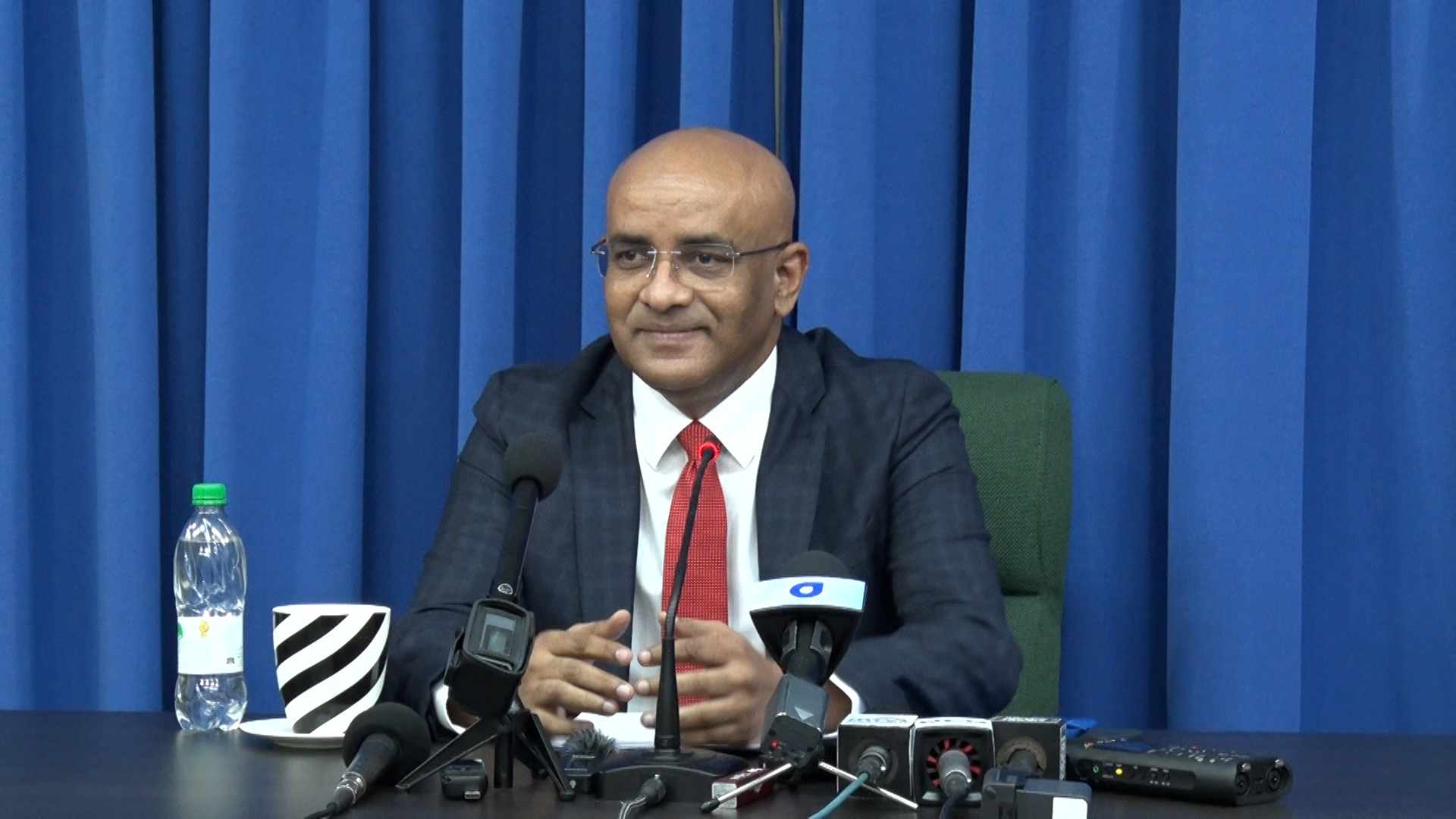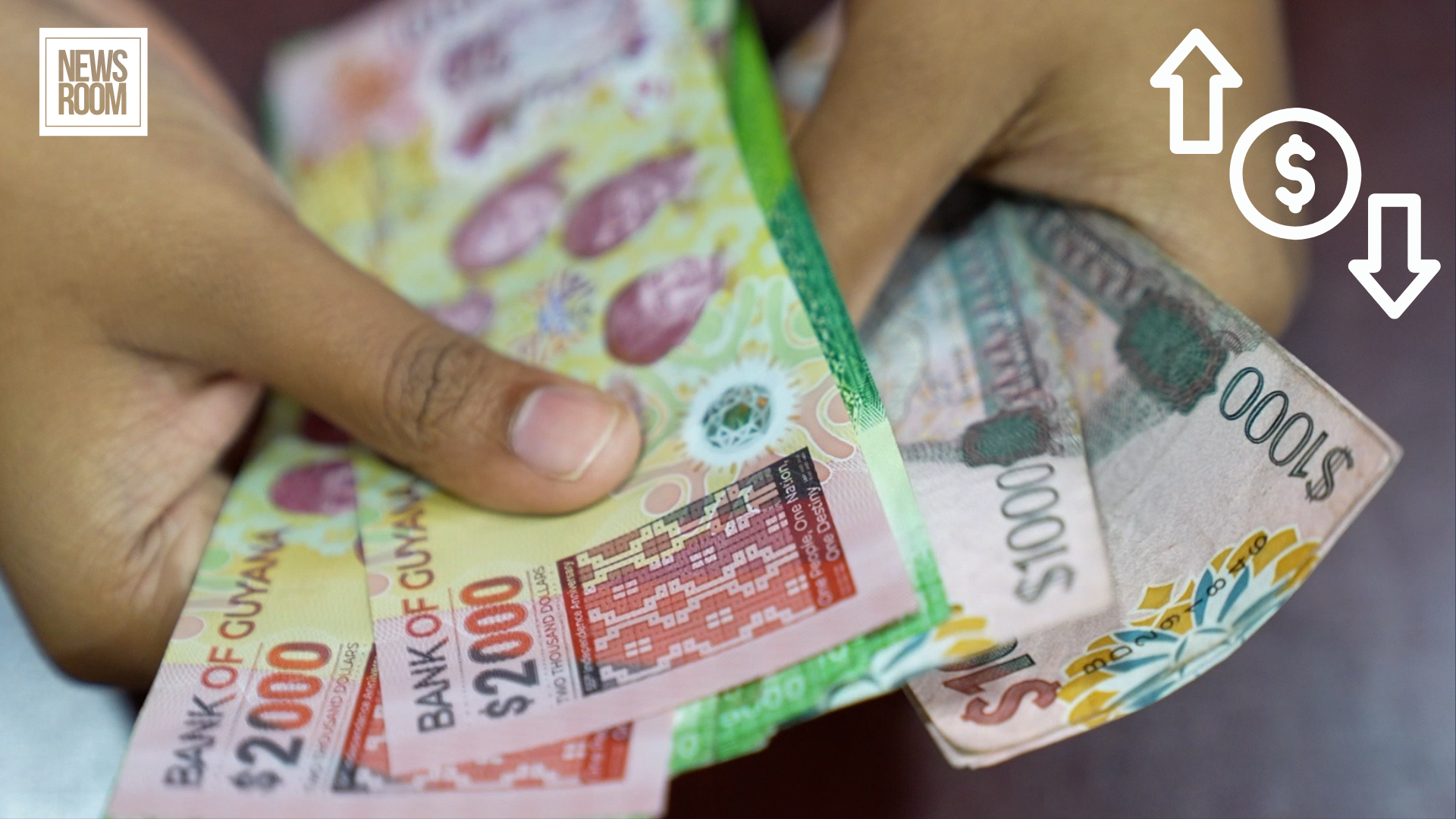This was disclosed by Vice President, Dr Bharrat Jagdeo during an interview on Friday. Responding to criticisms about the percentage of the increase, the vice president outlined the administration’s comprehensive strategy that will see increases in disposable income and overall economic viability in the long-term.
“This country has to have a viable economic strategy and an economic strategy cannot be all about the recurrent budget…You have to plan for the future. You have to create the conditions to create future wealth,” the VP noted.
One of the moves the government has made since returning to office is reversing some $40 billion in taxes imposed on Guyanese by the APNU+AFC government during its tenure. This is in addition to incentives in various sectors to buffer the rise in cost of living.
“By having conducive policies moving forward, like in some of the sectors we have further reduced taxes, like in education and health, we removed the corporate tax consistent with our manifesto promises. And thirdly, infrastructure. Infrastructure helps to lower unit costs and the costs of doing business… so that’s the balance we strike.
“You improve people’s lives by reducing the taxes so they pay less taxes now. So, they have more disposable income and we’ve done that. You increase their salaries, that’s disposable income, which we’ve done, and then you also create conditions for more people to be employed, like the 11,000 part time workers who now earn about $6 billion more, they were never earning that before,” he pointed out.
Reference was also made to the salary adjustments for the joint services and health sector workers, as significant and instrumental in the administration’s move to fix the disparities in salaries and wages in those sectors.
“So, in the joint services, across the disciplined services the four agencies, there were big disparities between comparable positions. So, like a corporal, might be earning significantly less than a corporal in another agency…so what we did, we tried to raise the bottom up. So, the minimum salary for constable went up. So, you raise people at the bottom and secondly, you try to fix the disparities between comparable jobs across the services, the joint services. The same thing in the health sector,” the VP explained.
Dr Jagdeo said while the opposition only looks at certain aspects, the government continues to manage the economy from a sustainable standpoint, which will ensure citizens have more money in their pockets.
“When you manage a country. You have to look at all the parts and find balances so that we can do this over the long term, over the long term keep increasing the wages our people get, get more of them employed, get better working conditions, grow the economy, so if the oil and gas sector collapses or the prices drop significantly, we don’t have a big shrinkage in terms of economic viability,” he highlighted.
Since returning to office, the government has afforded public servants, a seven per cent across-the-board increase in 2021; the restoration of one-month tax-free year-end bonuses to the disciplined services totalling more than $1 billion per annum; an increase of some 40 per cent in the monthly old-age pension from $20,500 to $28,000, providing a total pension payout of more than $21 billion to senior citizens; an increase of 55 per cent in public assistance payments from $9,000 to $14,000 monthly, which provided a total of more than $3 billion in annual income support to the beneficiaries of the programme, among other interventions.
Other noteworthy incentives include the restoration of the cash grants to the parents of school-aged children, totalling some $6 billion in direct cash transfers, and an increase in the minimum wage for private sector employees by 36 per cent to $60,147, in keeping with the recommendations of the tripartite committee.







